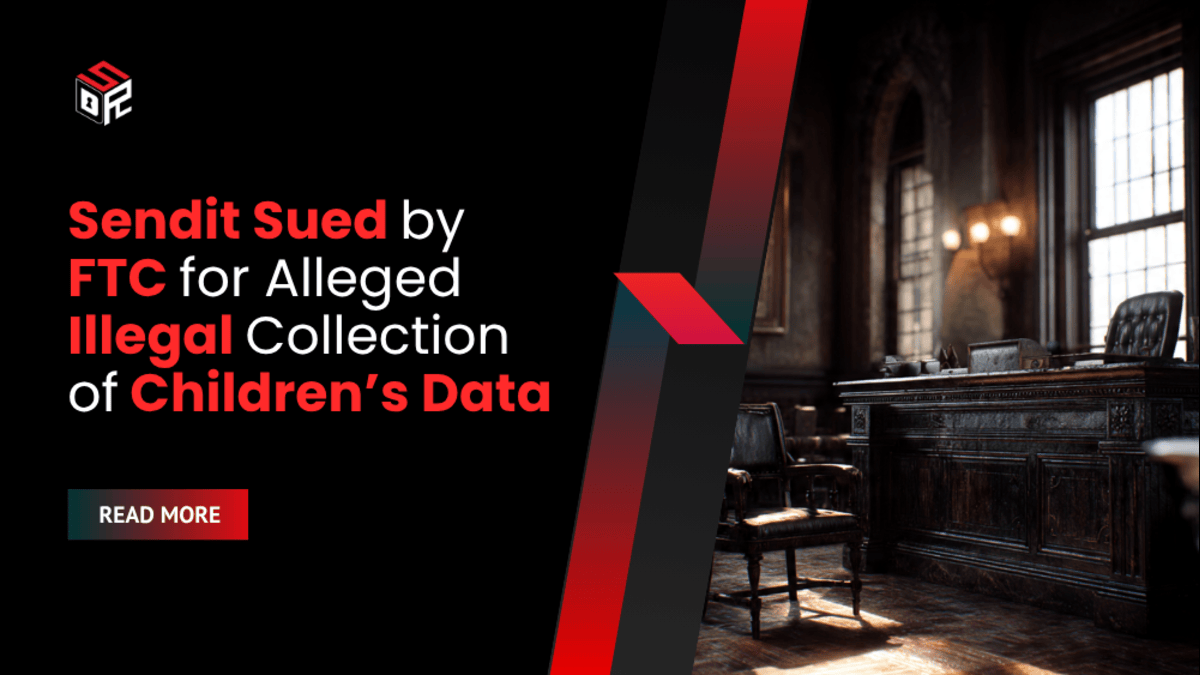The Federal Trade Commission has referred a complaint to the Department of Justice accusing Iconic Hearts Holdings Inc., the company behind the Sendit social app, and its chief executive of unlawfully collecting personal information from children and engaging in deceptive subscription and billing practices. The complaint alleges violations of the Children’s Online Privacy Protection Act (COPPA) and federal consumer-protection statutes tied to misleading premium membership sales and recurring charges.
According to the FTC’s action, Sendit, an icebreaker-style companion app frequently used in conjunction with social platforms, allowed users to post prompts and solicit anonymous responses from followers. The app has been widely adopted by teenagers and the FTC says that in 2022 Sendit had at least 116,000 registered users in the United States under the age of 13. The agency’s complaint alleges that Sendit collected personal data on those underage users — including phone numbers, birthdates, photos and social media usernames — without providing parental notice or obtaining verifiable parental consent as required by COPPA.
The regulator further alleges that Sendit misled users about the nature and origin of anonymous messages, in some cases generating fabricated responses designed to appear as if they were sent by a user’s friends or contacts. The complaint characterizes some of these fake messages as provocative or sexual in tone and says the practice deceived users about the source and authenticity of content appearing through the app.
In a separate set of allegations, the FTC said Sendit promoted a premium “Diamond Membership” with claims that paying users could learn the identity of anonymous senders. The complaint contends that the app did not deliver on that promise, instead producing generic, false or no identifying information for premium purchasers. The agency also alleges the company obscured the true billing terms for the membership, causing consumers to be charged recurring weekly fees of up to $9.99 rather than the one-time payment customers understood they were buying.
“The complaint alleges that Sendit collected personal data from children without parental consent and deployed deceptive practices to extract money from consumers,” the FTC stated in its referral to the Department of Justice.
The FTC’s referral follows an internal investigation that identified both the underage-account problem and the billing and deception claims. The agency says it voted unanimously to refer the matter for enforcement action and that the allegations remain subject to judicial review. The complaint was described as a formal step to seek relief and to hold corporate officers accountable where warranted.
The company behind Sendit markets the app as a social engagement tool that integrates with Snapchat and Instagram, and developer statements have previously cited a large global user base. The FTC’s complaint, however, focuses on U.S.-based underage users and the company’s compliance with federal child-privacy protections and consumer-billing laws. The complaint also alleges that Sendit’s practices violated the Restore Online Shoppers’ Confidence Act (ROSCA), which governs clear disclosure of recurring charges in online purchases.
The alleged collection of children’s personal information without parental consent is central to the FTC’s legal theory. COPPA requires operators of services directed to children under 13, or that knowingly collect information from children under 13, to provide notice to parents and obtain verifiable parental consent before collecting or using personal information. The FTC alleges Sendit failed to meet those obligations and thereby exposed children’s personal details to third parties and to the app’s operator.
Beyond the child-privacy claims, the FTC’s complaint raises questions about transparency and billing practices in the mobile-app economy. The agency asserts the Diamond Membership’s marketing misrepresented the service and that the app’s checkout and subscription flows did not adequately disclose automatic renewals and recurring charges. The alleged combination of deceptive messaging and unclear billing, the agency says, harmed consumers who paid for an advertised feature that was not delivered.
The referral to the Department of Justice signals the FTC is seeking stronger enforcement options beyond administrative remedies, including potential civil litigation. The agency’s decision to escalate the matter to the DoJ typically occurs when the FTC seeks court-ordered relief such as monetary redress, injunctive measures or penalties that require federal court intervention.
The FTC has made public information about COPPA enforcement and resources for parents and app developers; the agency’s main site includes guidance on compliance and on the obligations of services that collect children’s data. Consumers concerned about deceptive subscription charges or unauthorized credits generally are advised to review purchase histories, contact their payment providers, and use dispute or chargeback mechanisms when warranted.
Sendit’s developer and chief executive have been named in the complaint. At the time of the FTC referral, the company had not furnished a public, court-filed response and the allegations remain claims to be adjudicated. The FTC emphasized that the referral and the complaint constitute allegations and that a court will determine liability and any appropriate remedies.
Legal and consumer-protection observers say the case highlights persistent regulatory attention on mobile social apps that attract young users and monetize through premium features. The intersection of children’s privacy protections and modern in-app commerce raises compliance complexity for developers, who must ensure clear billing disclosures, robust age-screening or parental-consent mechanisms, and truthful advertising about features.
The FTC’s action may spur additional scrutiny of other youth-focused social utilities and could prompt app stores and payment processors to tighten controls over how recurring charges and identity-revealing features are presented to consumers. Consumer advocates have urged parents to review the privacy settings and permission requests of apps used by children and to monitor billing statements for unexpected charges.
The Department of Justice will review the FTC’s complaint and decide whether to pursue litigation based on the agency’s allegations. The outcome will determine whether the FTC’s claims translate into court-ordered penalties, restitution for consumers, or structural changes required of the company and its leadership.









